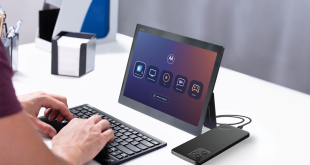Cloud, the importance of partners, and the continued success of Windows were the dominant themes of this year’s Microsoft Worldwide Partner Conference’s opening speeches.
Key members of Microsoft High Command – including chief executive Steve Ballmer addressed 5,000 attendees at the Staples Center in Los Angeles, in what can be used as a rough barometer of Microsoft’s future direction.
Ballmer, perhaps unsurprisingly, was making a big show of patting its partners on the back. The ever enthusiastic CEO excitedly exclaimed ‘we love our partners’ before claiming 100 per cent of Microsoft’s business was done through them.
He moved straight in to big up Windows 7 as ‘the fastest-selling operating system’, with 400 million Windows 7 licenses apparently sold in less than two years.
Continuing to talk up the strength of the Windows PC medium, Ballmer added a thinly veiled swipe at Apple, saying: “Just in the last year alone, there have been 350 million PC’s sold. You might compare that with some other guys who are in the 20 million range. Now 20 million is too much, but the last time I checked, 350 was a lot more than 20.”
Head in the cloud
As one of the cloud’s biggest exponents, the firm used the opportunity to reassert the fact it is ‘all in’.
For many companies 2010 was the tipping point for cloud, with many firms seriously beginning to invest in it. Indeed, Ballmer added that last year’s WPC was ‘scary’ for him, as he more or less threw down a gauntlet on the matter, saying “we need you decide if your coming with us.”
If it wasn’t clear already, the enthusiasm with which Microsoft spoke about the cloud today should prove this area will be a key part of where the company sees its future, and the future of the entire industry.
Game on
Talk around the firm’s Xbox division mainly centred around its continued plans to integrate other aspects of its business into the console, such as search engine Bing. Live TV integration will also be coming soon. The forthcoming ability to control the Xbox with voice commands is tightly linked to this.
Ballmer, perhaps slightly underplaying the capabilities of ‘the average user’, stated: “a game controller is a little too complicated for the average user. Even a remote control is a little too complicated for the average family. What we want to do is work on giving the TV a new voice. And that’s your voice.”
Phone home
When it comes to mobile, while still enthusiastically explaining how successful Microsoft is, there were concessions to its trailing position in the area. ‘We’ve gone from very small to small,” Ballmer reportedly said (though this actual line doesn’t appear to be in the keynote video).
Unsurprisingly, the recent deal with Nokia was held up as a huge advocacy of the system, He also pointed out that a year ago, Microsoft had no Windows Phone, but that in the last year it’s sold millions. Describing the market as ‘busy and competitive’, he admitted the firm ‘had a bit of work to do to break through.’
Snapping back into more typical corporate bravado, Ballmer went on to say according to its survey, nine out of ten users would recommend Windows Phone to a friend, and that 20,000 apps have been made available in eight months – claiming this represents a faster ramp up than either Android or iPhone.
This may be true, but it does seem to imply Microsoft would like us to believe its business in mobile phones started with Phone 7 last year, disregarding the less popular previous version Windows Mobile 6.5, and all the forerunners before it. That’s it’s prerogative of course, but the stat that stands in the wilderness somewhat, since Google and Apple don’t restart the clock each time they bring out a new version of their respective OS.
Comparing the launch of Phone 7 to the entire business models of rivals is arguable the same as comparing the launch of the Froyo update to the launch of the iPhone years before. In other words, not terribly representative of the full picture.
Ballmer added that Nokia was continuing to push Microsoft into wider geographical areas and to multiple price points. This would make sense, since these days Nokia’s real strength lies not in the smartphone market, but in the cheaper, feature phone market, which proportionally tend to do better in emerging markets – or weaker economies – around the world.
New Windows
Not a huge amount of new information was revealed about Windows 8, but it was described as a ‘true reimagining of Windows PCs and slates.’ It was also explained that Windows is the backbone of Microsoft, with Ballmer throwing in a baffling chorus of “Windows, Windows, Windows, Windows.”
In a demonstration, the integration between tablet, phone, and Xbox operating systems was highlighted, with a similar visual style running throughout. One of the most pushed features seems to be the touchscreen functionality for PCs, which is thus far from a mass market pursuit, but is certainly being held up as a key selling point none the less.
To read our full preview of Windows 8, click here.
Elsewhere, the firm claimed Office is continuing with annual double digit growth, which considering it has been ten years since its original launch, even critics would have to doff their cap here.
Ballmer, in a seemingly semi-religious mood, finished his speech by proclaiming ‘as you go, so does Microsoft.’ He didn’t add the caveat ‘as long as it’s the cloud,’ but the overwhelming predominance of this theme left this sentiment in the air for us.
 PCR Tech and IT retail, distribution and vendor news
PCR Tech and IT retail, distribution and vendor news


